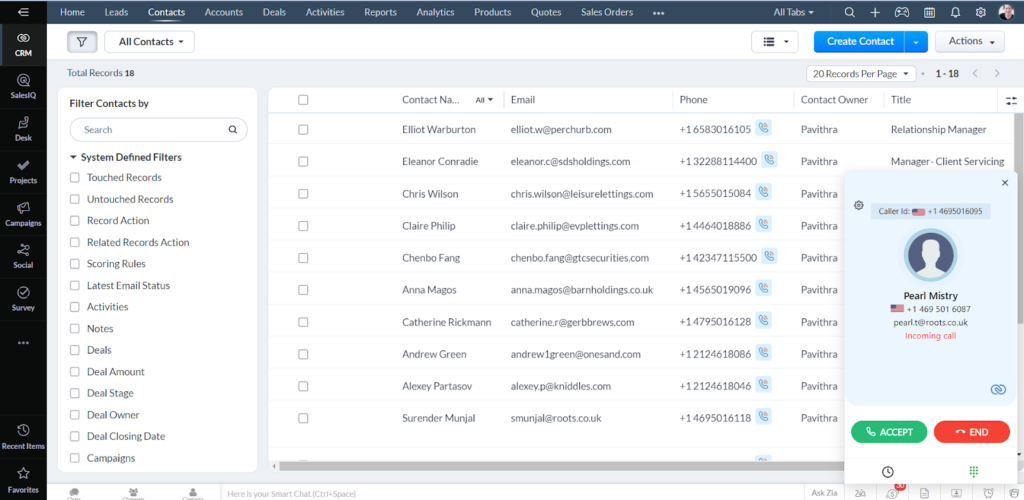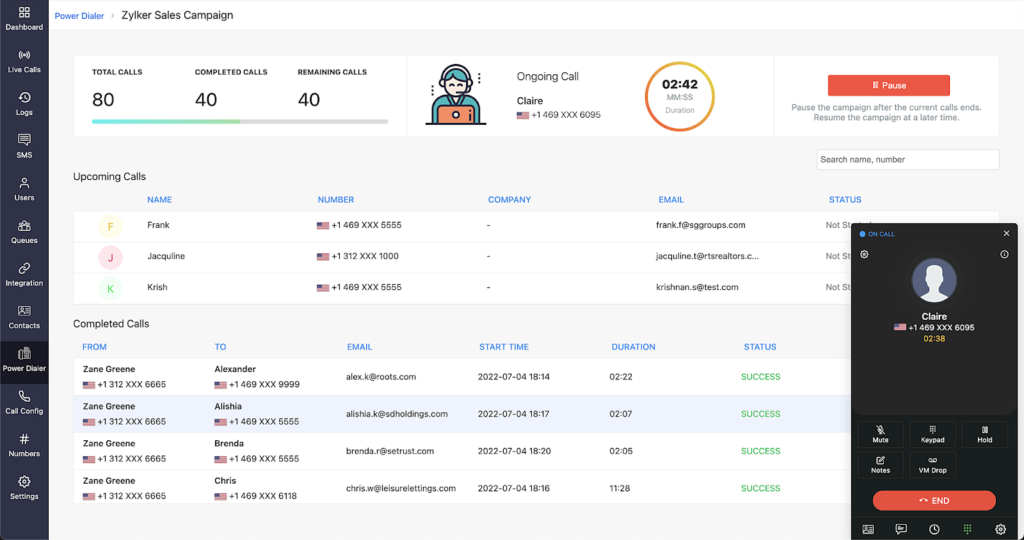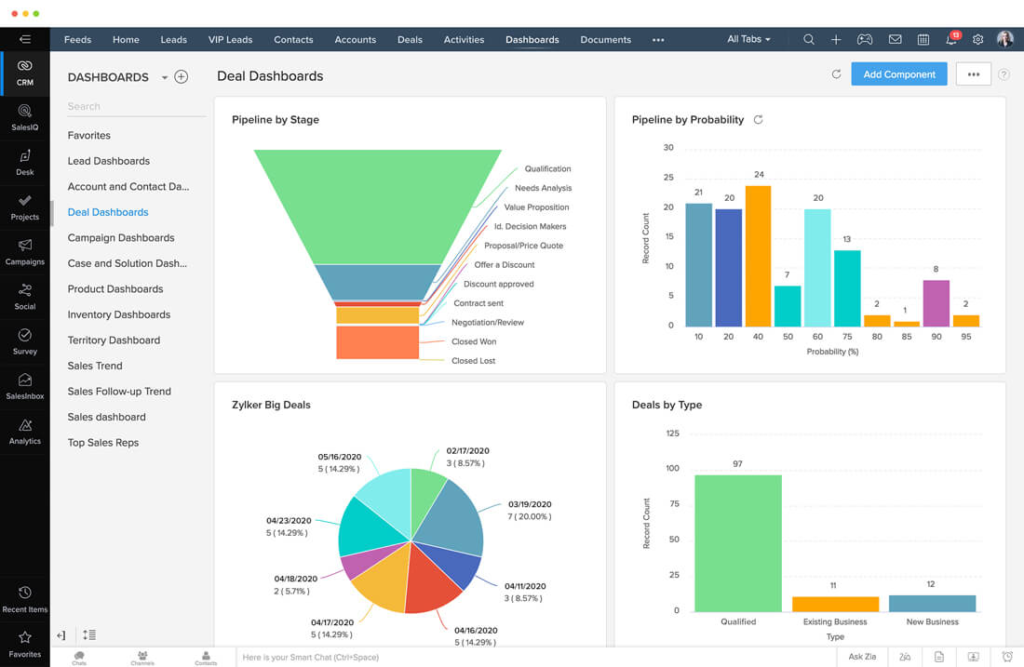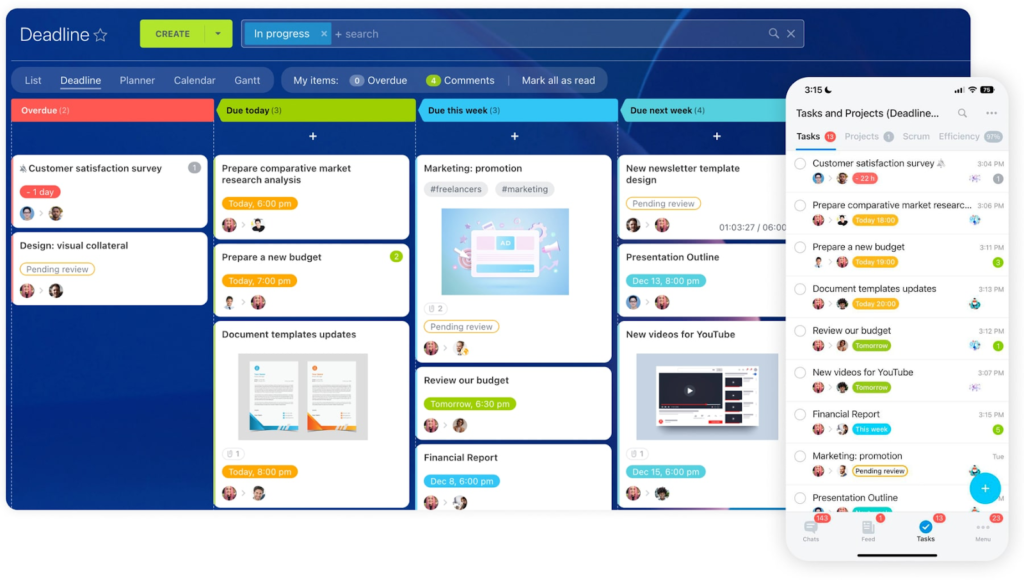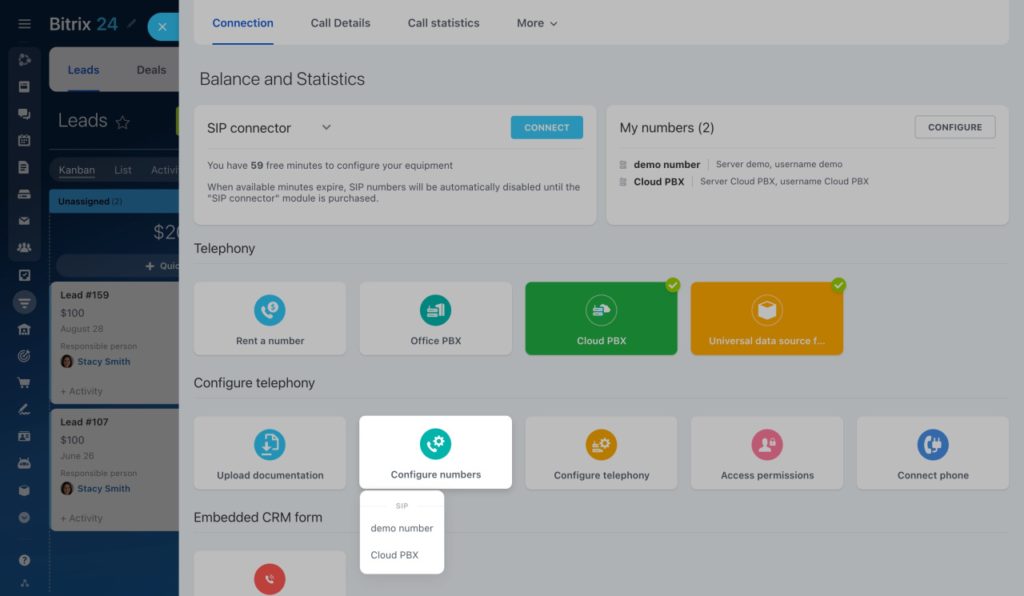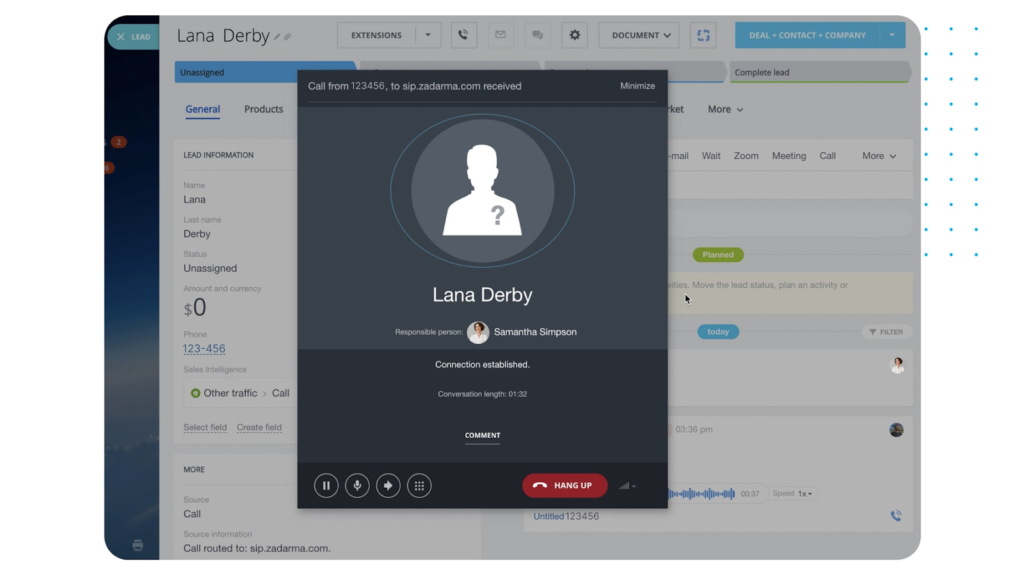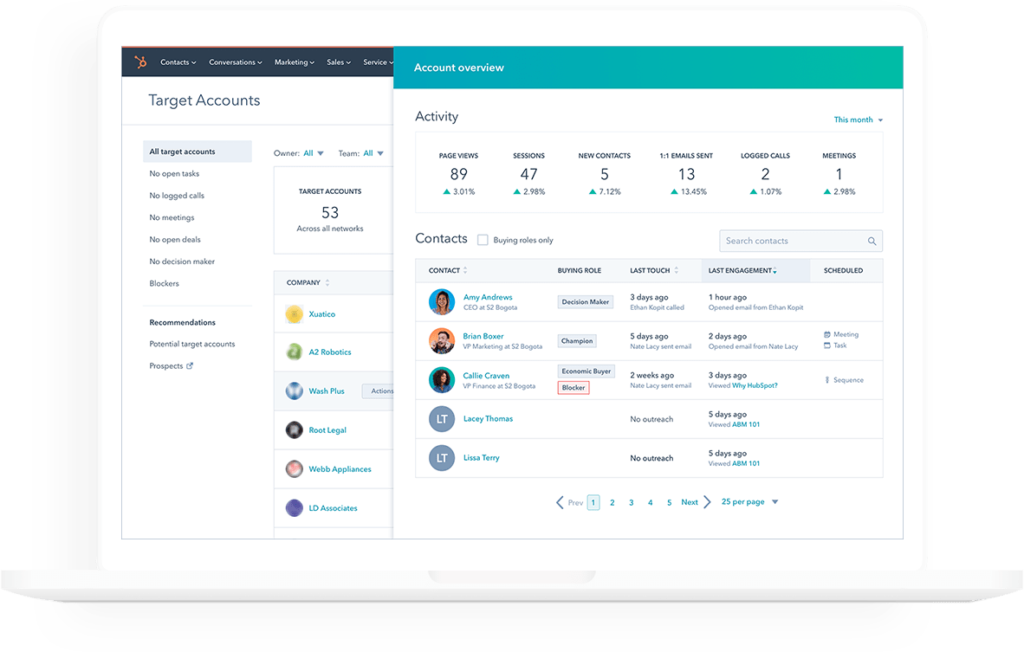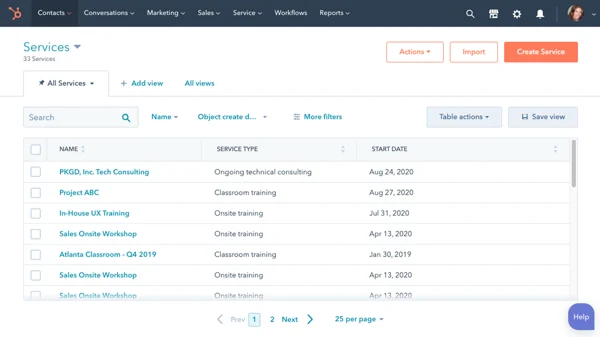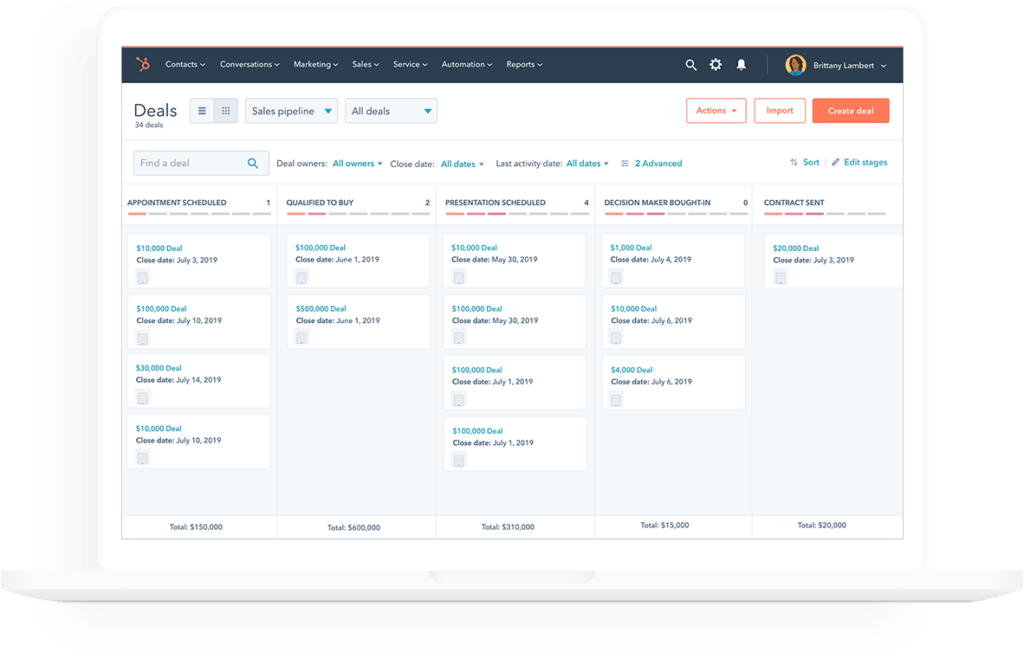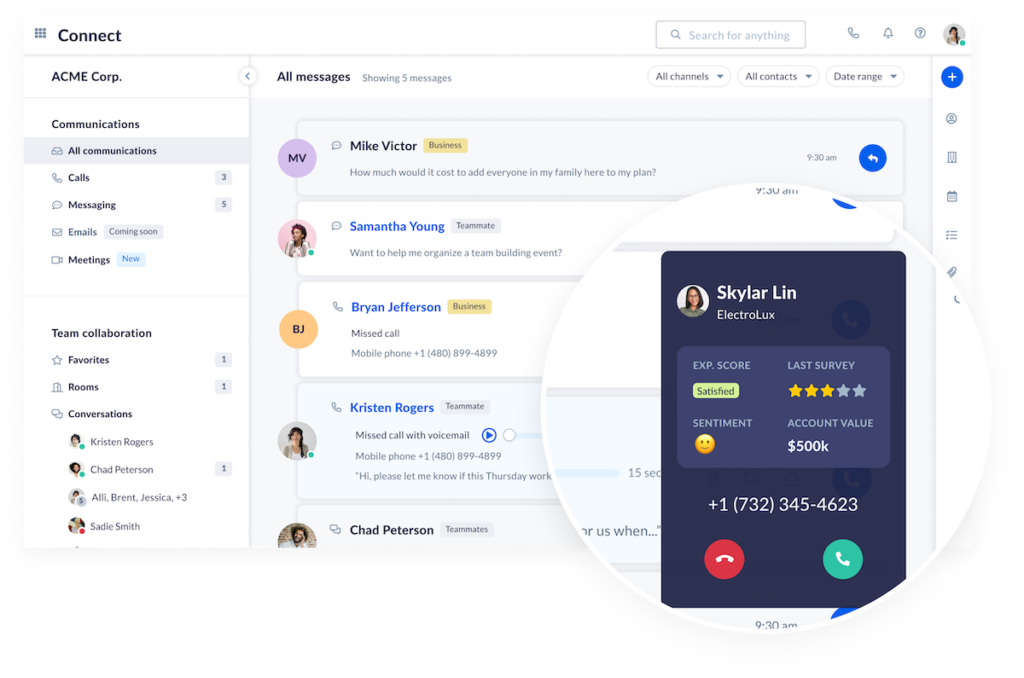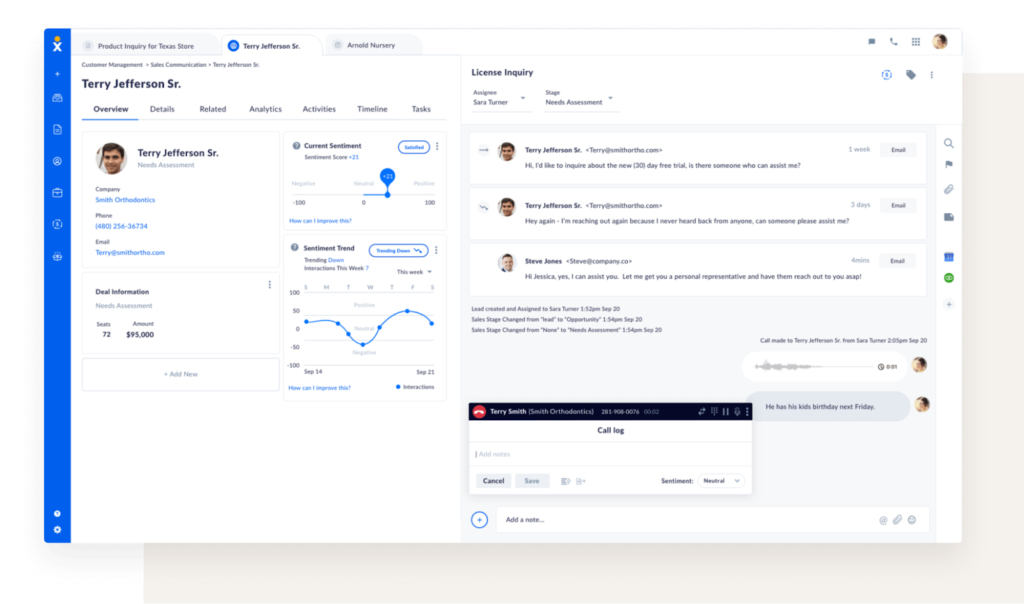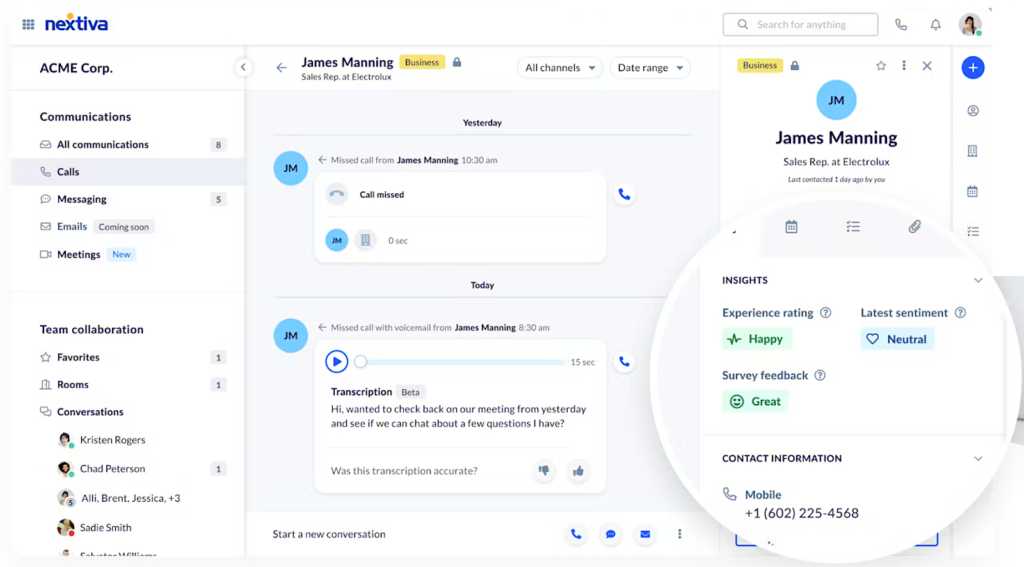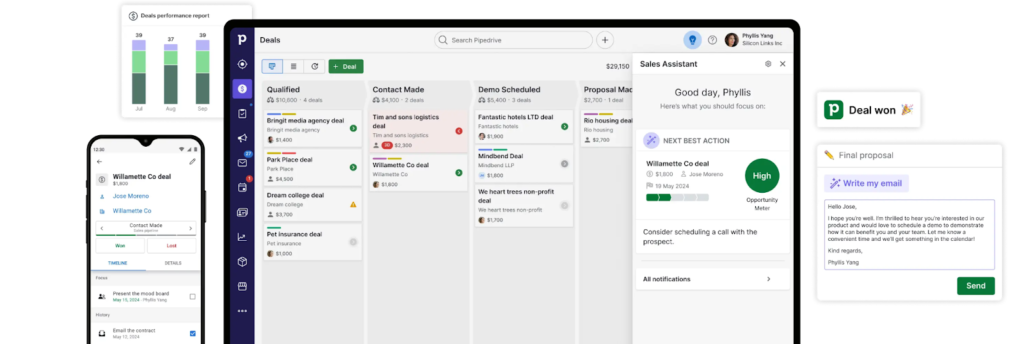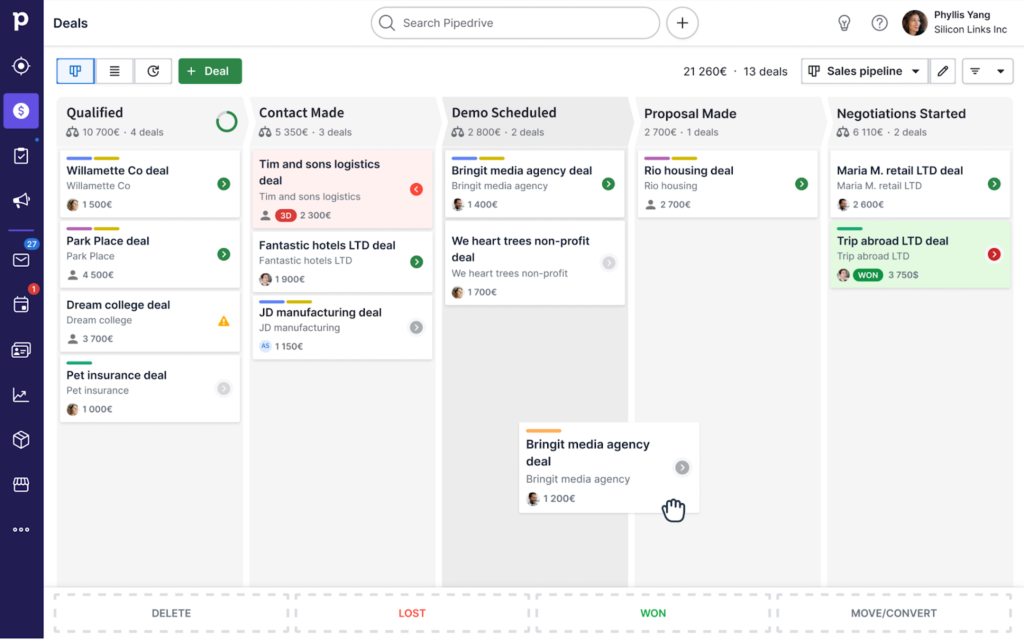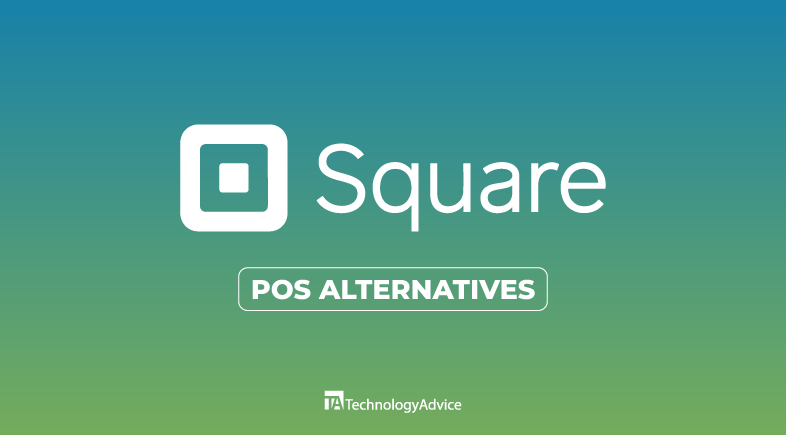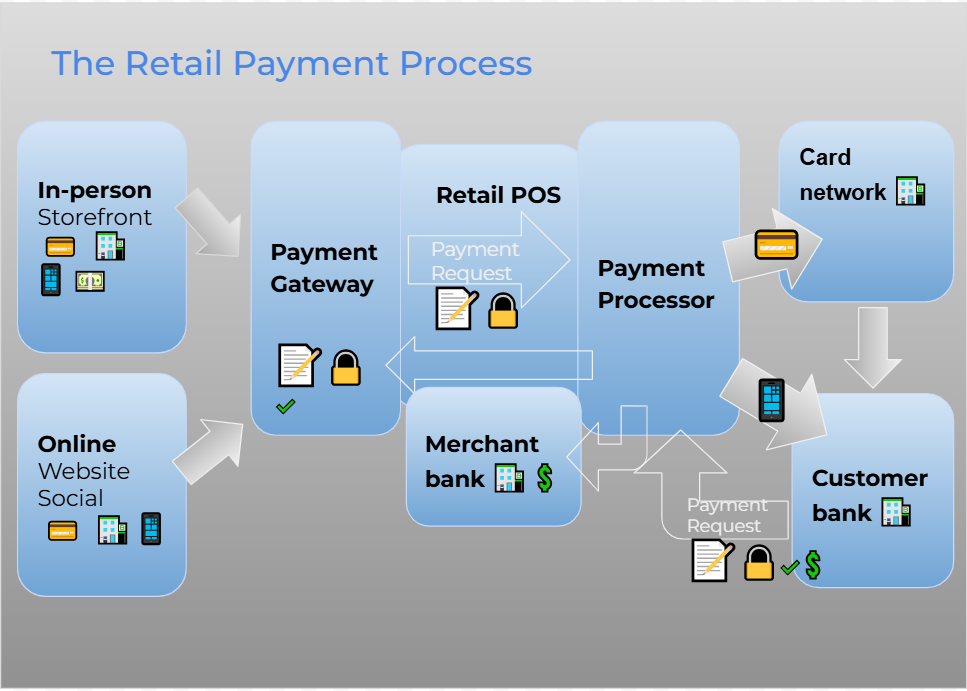Key takeaways
Call center CRM (Customer Relationship Management) software is designed to help you manage customer interactions and streamline your call center’s operations. It provides a centralized platform for handling customer data, tracking communications, and improving how agents handle customer service tasks.
In 2024, call center CRM software is rapidly incorporating new technologies like artificial intelligence (AI) and automation to further enhance the customer experience. Today’s CRM systems integrate with various communication channels, from email and chat to social media and video, allowing you to deliver consistent service across multiple platforms.
- Zoho CRM: Best for customization and affordability
- Bitrix24: Best for comprehensive free features
- HubSpot Sales Hub: Best for sales and marketing integration
- Nextiva: Best for VoIP integration
- Pipedrive: Best for sales-focused teams
Why implementing a call center CRM is important
By implementing a CRM system, you can provide your agents with the tools they need to access customer information quickly, reduce call handling times, and improve overall satisfaction. With the right CRM, you’ll also have access to real-time analytics and reporting features that can help you make data-driven decisions, ensuring your call center runs efficiently and meets the demands of your customers.
This guide will walk you through what you need to know about call center CRM, how it can benefit your operations, and which solutions may be the best fit for your business.
Also read: Best Call Center Software & Tools for 2024
Benefits of a call center CRM
Implementing a call center CRM can offer several significant benefits that improve both your customer service and operational efficiency. Here’s a just a few ways the right call center CRM system can help your call center thrive:
Improved agent productivity
A call center CRM gives your agents instant access to customer information, previous interactions, and relevant data all in one place. This minimizes the time spent searching for details and allows them to focus on delivering faster, more efficient service.
Enhanced customer experience
With a centralized system that tracks customer history and preferences, agents can provide personalized interactions that make customers feel valued. CRM systems help you anticipate customer needs, resolve issues quicker, and deliver a more consistent, high-quality experience across different communication channels.
Better collaboration and knowledge sharing
CRMs allow your entire team to work more collaboratively by providing shared access to customer data. Agents, supervisors, and managers can seamlessly pass information between each other, ensuring that all team members have the context they need to address customer concerns effectively.
Also read: Best Customer Service Software 2024
Key features of call center CRM software
When evaluating call center CRM software, remember to focus on features that can optimize your operations and improve customer service. Also consider which are most important for your business and compare features of software options at each price tier offered. Scalability is also a crucial factor to keep in mind for growing businesses. Here are the key features you should prioritize:
Top 5 call center CRM software you need to know
Software
Score (Out of 5)
Best For
Key Features
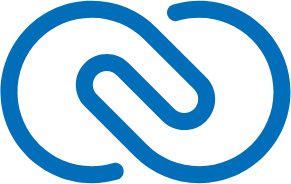
Zoho CRM
4.64
Customization and affordability
IVR integration, call logging, Zia AI for calls, omnichannel routing
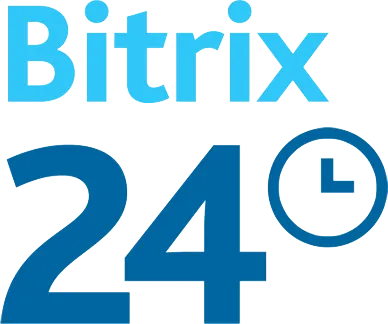
Bitrix24
4.51
Comprehensive free features
Free telephony, omnichannel contact, customizable pipelines, task automation

HubSpot Sales Hub
4.41
Sales and marketing integration
Call tracking, VoIP, omnichannel support, automation, reporting
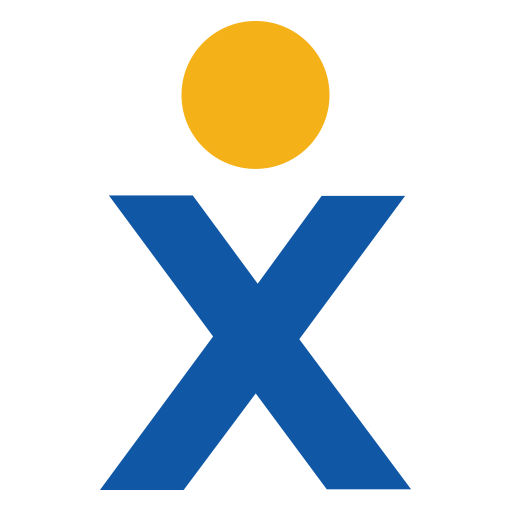
Nextiva
4.37
VoIP integration
VoIP, advanced IVR, call routing, real-time analytics, omnichannel integration
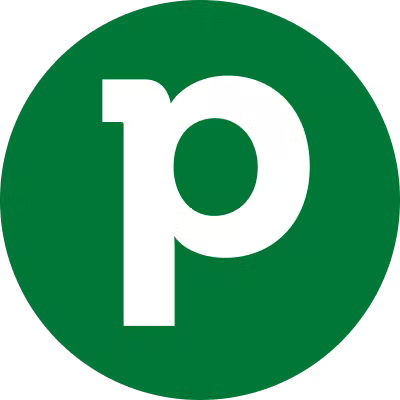
Pipedrive
4.29
Sales-focused teams
Call logging, workflow automation, real-time data, telephony integration

Zoho CRM: Best for customization and affordability
Overall Score
4.64/5
Pricing
4.38/5
General features and interface
4.43/5
Core features
5/5
Call center-specific features
4.64/5
Integration and compatibility
5/5
UX
4.75/5
User scores
4.3/5
Pros
- Mobile app includes call logging, sales tracking, business card scanning
- Omnichannel communication
- Automates call center tasks and customizes workflows
- Powerful lead management with Zia AI
- Affordable pricing and free plan
Cons
- Add ons increase costs significantly
- Limitations in free version
Why we chose Zoho CRM
Zoho’s flexibility and pricing structure make it the ideal solution for call centers looking to balance customization with affordability while scaling their operations.
Zoho offers flexible pricing plans that allow you to get started with robust features for as low as $14 per user per month on the Standard Plan, which includes tools like call logging, lead scoring, sales forecasting, and basic automation. This makes it perfect for small and growing call centers that need core functionality without heavy upfront costs. In contrast, HubSpot offers a free plan but requires more expensive upgrades to unlock essential call center features.
As you move up Zoho’s pricing tiers, the Professional Plan ($23/month) adds more advanced tools such as real-time call notifications through SalesSignals, Google Ads integration, and workflow blueprints, which streamline communication and decision-making in a busy call center environment.
The Enterprise Plan ($40/month) is where Zoho really shines for more complex setups, providing AI-driven insights with Zia, customizable dashboards, and the ability to automate even the most specific workflows through its CommandCenter feature. This level of customization is where Zoho truly outpaces competitors like Pipedrive, which, while strong in sales pipeline management, lacks the deep AI and customization capabilities that Zoho provides at a lower cost.
Additionally, Zoho integrates seamlessly with a wide range of third-party applications, and its omnichannel contact management system ensures that all customer interactions, whether by phone, email, or social media, are unified in one interface. This level of integration is a significant advantage over Freshsales, which offers strong built-in phone systems but doesn’t have the same flexibility for custom workflows and AI-powered insights.

Bitrix24: Best for comprehensive free features
Overall Score
4.51/5
Pricing
4.58/5
General features and interface
4.55/5
Core features
4.82/5
Call center-specific features
4.46/5
Integration and compatibility
5/5
UX
4/5
User scores
4.17/5
Pros
- Free plan with call center features
- Omnichannel communication
- Strong customization options
- Task management tools like Kanban boards and Gantt charts
- Built-in telephony
Cons
- Complex interface
- Add-ons for full functionality
Why we chose Bitrix24
Bitrix24’s free plan includes a well-rounded set of features such as lead capture, deal management, and task automation, all of which are essential for optimizing call center workflows.
Its telephony integration is something that’s typically reserved for higher-tier plans with other CRMs like Nextiva and Pipedrive. For smaller teams or budget-conscious businesses, the ability to set up a fully functional call center without having to upgrade immediately makes Bitrix24 a clear winner.
Unlike HubSpot, which does offer a free plan but limits its core CRM capabilities and telephony integrations unless you upgrade, Bitrix24 includes call logging, basic telephony, and task management from the get-go, giving users immediate access to critical call center features without hidden costs.
Compared to Zoho CRM, which restricts advanced automation and lead management to its paid tiers, Bitrix24’s free plan allows you to set up custom workflows and manage contacts across multiple channels like phone, email, and social media. This makes it a standout option for teams that need omnichannel contact center functionality without a steep investment.
And while Pipedrive offers strong sales pipeline management, it doesn’t provide the same level of integrated telephony or project management in its lower-tier options, meaning that call centers using Pipedrive may need additional software to handle day-to-day operations.

HubSpot Sales Hub: Best for sales and marketing integration
Overall Score
4.41/5
Pricing
4.58/5
General features and interface
4.43/5
Core features
3.75/5
Call center-specific features
4.64/5
Integration and compatibility
5/5
UX
5/5
User scores
4.38/5
Pros
- Call tracking, VoIP integration, automatic call logging
- Advanced automation for email follow-ups, lead rotation, deal updates
- Customizable pipelines
- Over 150 pre-built reports with customizable options
Cons
- No built-in social media management in Sales Hub
- Limited pipelines in lower plans
Why we chose HubSpot Sales Hub
With HubSpot, you get an all-in-one solution that’s designed to streamline your workflow, helping your call center manage both marketing and sales without juggling multiple platforms. This makes it easier for your team to engage leads and close deals, while other platforms would require more setup and external tools.
While other options like Zoho CRM or Pipedrive specialize in specific areas—sales or marketing—you often have to link them with other tools to get the full picture. With HubSpot, you don’t need those extra integrations. It automatically combines sales and marketing efforts, giving your team a complete view of customer engagement, whether it’s tracking emails, website visits, or calls. This saves you time and keeps all your data in one place.
Compared to Zoho CRM, which is great for customization but lacks built-in marketing and customer support tools, HubSpot wins by providing a seamless, native integration. Pipedrive is excellent for managing your sales pipeline, but it lacks the deeper marketing tools HubSpot offers. For example, at HubSpot’s Starter tier ($18/month), you get VoIP tools and email tracking, which are core features.
As you move up to the Professional tier ($90/month), HubSpot adds more automation, advanced reporting, and predictive lead scoring, helping mid-sized teams work more efficiently.
At the Enterprise level ($150/month), HubSpot even includes advanced features like conversation intelligence and custom objects to further personalize how you manage customer data—something competitors like Bitrix24 don’t offer at the same level.
Also read: Best AI CRM for 2024

Nextiva: Best for VoIP integration
Overall Score
4.37/5
Pricing
3.13/5
General features and interface
3.98/5
Core features
4.82/5
Call center-specific features
4.82/5
Integration and compatibility
4.79/5
UX
4.5/5
User scores
4.57/5
Pros
- “Call Pop” feature
- Highly reliable call quality and uptime
- Gamification features
- Built-in VoIP system
Cons
- Call recording only available at higher tiers
- High starting cost for call center features
Why we chose Nextiva
Nextiva is a top choice for businesses that prioritize both scalability and communication efficiency, offering a versatile set of features that ensure smooth operations from small teams to large enterprise-level contact centers. Its integration with CRM tools like Salesforce and Zoho also makes it a flexible solution for businesses already invested in other platforms.
It can easily handle omnichannel communications—including voice, email, chat, and social media—all from a single platform, so agents have full visibility across every customer interaction. Compared to Bitrix24, which also supports multiple channels, Nextiva’s focus on superior call management, backed by features like skills-based routing and real-time agent monitoring, offers greater control and precision in handling high call volumes.
For small to mid-sized teams, Nextiva’s Engage Plan ($40/user per month) provides a comprehensive suite of tools, including call recording, toll-free numbers, and inbound call center management, which makes it a more powerful alternative to Pipedrive, whose telephony integrations aren’t as deeply embedded into the CRM.
Additionally, Nextiva’s Power Suite Plan ($60/user per month) adds AI-powered interactive voice response (IVR) and advanced call routing, which outperforms Zoho CRM when it comes to customization and intelligent customer handling. While Zoho offers great flexibility, Nextiva’s Call Pop feature, which delivers instant customer data to agents, provides a more streamlined approach to personalizing interactions.
For larger contact centers, Nextiva’s Enterprise Plans (starting at $129/agent per month) offer advanced features like workforce management and AI-driven workflow automation, making it a strong competitor to higher-end solutions like HubSpot Sales Hub.

Pipedrive: Best for sales-focused teams
Overall Score
4.29/5
Pricing
3.54/5
General features and interface
4.2/5
Core features
4.46/5
Call center-specific features
4.46/5
Integration and compatibility
4.79/5
UX
5/5
User scores
4.46/5
Pros
- Real-time data access
- Easy to use
- Integrates smoothly with telephony systems
- Customizable pipelines
Cons
- Limited email features on lower plans
- Add-ons can increase costs significantly
Why we chose Pipedrive
For sales teams, the combination of customizable pipelines, workflow automation, real-time data, and strong telephony integration make Pipedrive the go-to choice. It delivers exactly what a sales-focused team needs to manage leads, close deals, and optimize performance without the complexity or high cost of more general CRMs like Salesforce.
Pipedrive is known for delivering intuitive and customizable sales pipelines that allow teams to track deals and customer interactions in real-time. This gives agents a clear, visual overview of where each deal stands, helping them close more effectively. Unlike Zoho CRM, which provides extensive customization but requires more setup for sales-specific workflows, Pipedrive is built with simplicity and efficiency in mind, making it ideal for sales teams who need to focus on lead management and deal closure without getting bogged down by overly complex interfaces.
In terms of automation, Pipedrive provides essential workflow automation, automatically routing calls, scheduling follow-ups, and integrating call center activities with CRM functions. This is particularly useful for sales teams who need to manage high volumes of leads quickly.
Pipedrive’s integration with telephony systems like Aircall allows agents to make calls directly from the platform, with one-click calling and automatic call logging, features that are either absent or less integrated in competitors like Bitrix24, which is more geared toward collaboration than direct sales.
Pipedrive’s real-time analytics provide sales teams with insights into key call center metrics such as call durations, conversions, and lead follow-ups, ensuring that managers have the data needed to adjust strategies on the fly. This sets it apart from Nextiva, which focuses more on communication tools than on real-time sales data.
Pipedrive also enriches customer profiles with detailed data from call histories and previous interactions, helping agents deliver more personalized and informed service—a feature that is highly valuable in a sales-driven call center.
Also read: 6 Best VoIP Software & Providers for 2024
How to choose which software is best for you
Choosing the best call center CRM software depends on your specific needs, but focusing on key strengths of the listed solutions can help you decide. HubSpot Sales Hub is ideal if you’re looking for an all-in-one platform that integrates both sales and marketing functionalities, making it great for teams needing cohesive tools across departments.
For more sales-driven operations, Pipedrive is your best bet, offering intuitive, deal-centric features designed to help sales teams stay organized and efficient. If customization and affordability are your priorities, Zoho CRM may be your best bet with its flexible options and cost-effective pricing, making it suitable for small to medium-sized call centers that need adaptability without breaking the bank.
For businesses seeking a free solution, Bitrix24 provides comprehensive features, including project management and communication tools, which are ideal for those starting out or looking for a cost-effective alternative.
Finally, if VoIP integration is critical to your operation, Nextiva is likely the best option, providing seamless VoIP features and communication tools to ensure a smooth experience for call centers handling a high volume of inbound and outbound calls.
Also read: CRM Types: Which CRM Software is Right for You?



